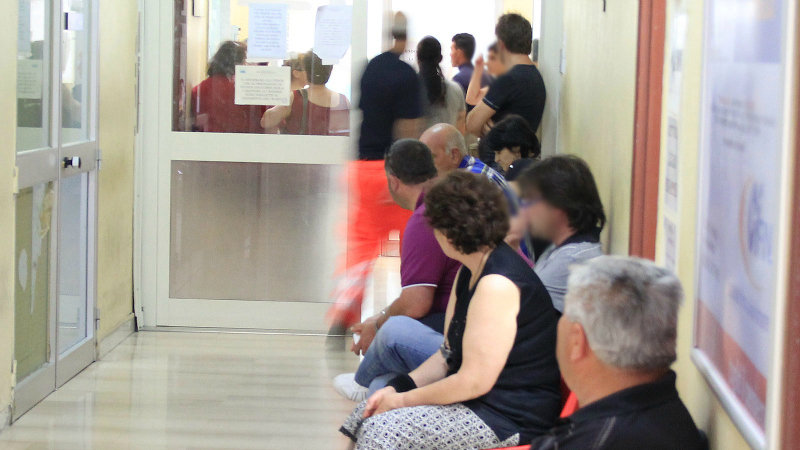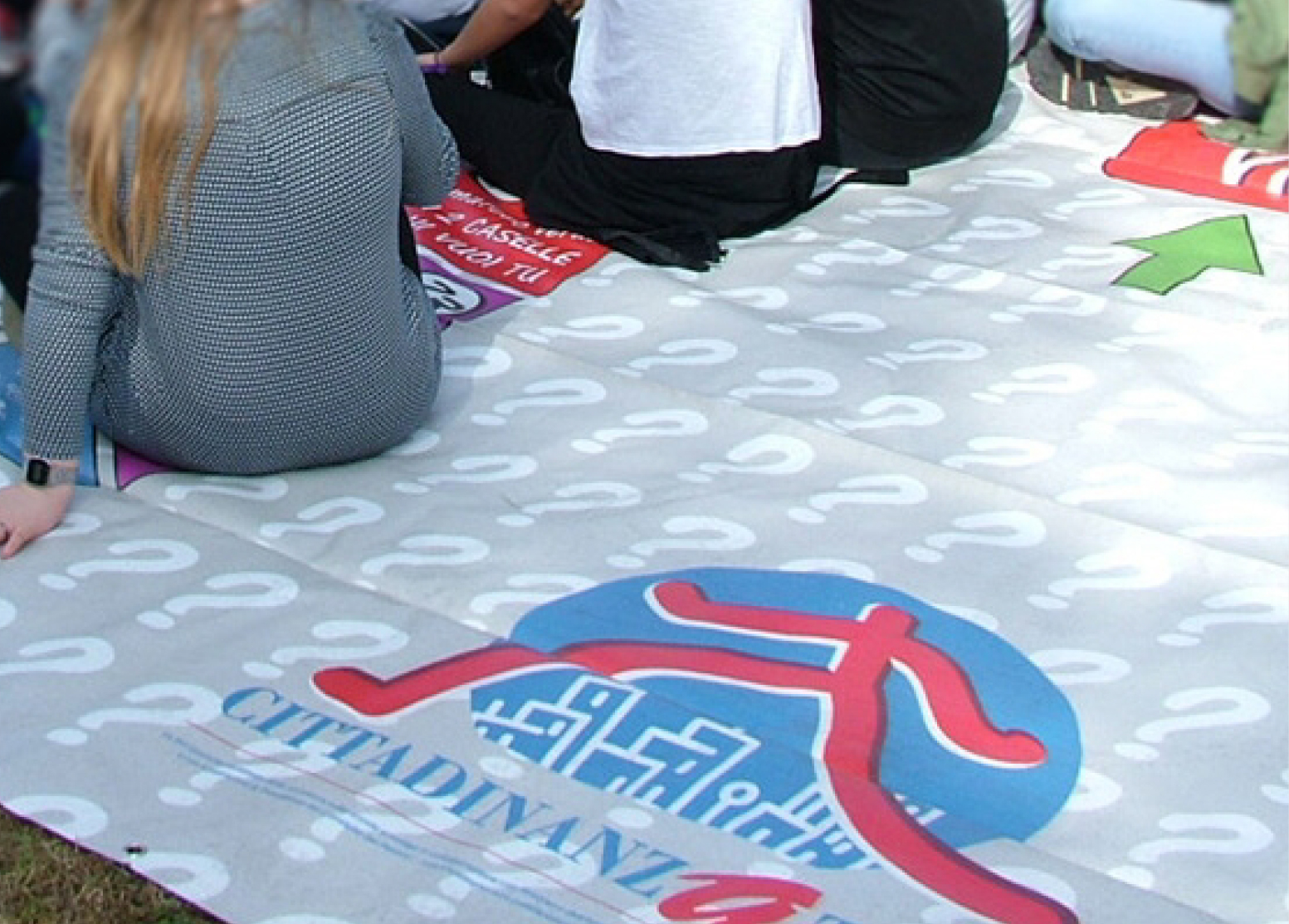Cittadinanzattiva: I ° Report on civil disability and bureaucracy
The real Disabled penalized by the fight to the not entitled few. A year of waiting for the economic benefits, lack of computerization and too many bureaucratic steps do the rest
While much you spend and spreads in the fight against fake invalids, the citizen who try to apply for disability collides with a labyrinthine and hostile path, with the bureaucracy and the lack of computerization of the system and wait on average a year to get the future economic benefits against 120 days prescribed by law.
To be slow and cumbersome is all the way to access the disability support, and takes longer than the previous year: only to be summoned to pass the first visit an average of 8 months compared to 6 in 2011, 11 months to receive the verbal versus 9 of the previous year.
According to the Court of Auditors (Report, 2012), are expected on average, from the submission of the application to the closure of the process, 278 days to verify the disability, 325 for civil blindness, 344 for deafness. The costs of these delays in 2011 amounted to 24 million euro. If in addition we add 34 million of spending on INPS panel doctors, we have a total of 58 million € actually "burned" by the so-called hunt for fake invalids who, according to the 2012 Report of the Financial Police, are little more than 1000, equal to 0.04% of those eligible.
Equally irrefutable that doctors used for the activities of outstanding verification were in fact taken away from ordinary activities for the granting of disability: in 2011 they were regularly found in local health committees in little more than one case out of three (attendance rate of 37,7% compared to 46% in 2010). To all this must be added the lack of computerization of ASL who have sent in electronic format to the INPS only 56% of the reports. The remaining 44% in paper format has resulted in a waste of resources and time for insertion into the INPS platform. On the other hand more than 45% of the citizens advancing disability claim, clashes with the slowness of the bureaucratic.
These are the main elements of the National Report on disability and civil bureaucracy, presented on June 25 in Rome for Cittadinanzattiva which in May 2011 launched the campaign "I am a ViP - Very invalid People " (www.sonounvip.it). This Report examines 3,876 reports received by the National Health PIT and sites of the Tribunal for Patients' Rights in 2012.
“It is unacceptable that, to contain spending on welfare, they deny to citizens the constitutional right to civil disability, increasing opportunities for verification and revising downward the income and health criteria for the allocation of allowances, and on the other hand does not simplify the current administrative process as well as producing long delays, it burns only for interest expense of € 24 million in a single year. Neither we cannot know how many they are and what measures have been taken against those officials who have INPS and Asl not granted the paltry number of allowances, determined by the Financial Police", says Tonino Aceti, head of the National Coordination of patient chronic (CnAMC) Cittadinanzattiva.
Too much time, not only in relation to the 120 days provided by law, but primarily, in relation to the real needs of citizens in 45.6% of cases (compared to 28.4% in 2011) indicate the length and tortuosity of the bureaucratic path to be taken for the request of disability: in one case out of three (34% in 2012 vs. 30% in 2011) first have great difficulties in submitting the application, in a case out of 5 (24.8% compared to 23.7% in 2011), long waits for the convocation at the first visit, in a case out of 4 additional expectations for receiving the final minutes (19.4% in 2012, 12.7% in 2011), from which the related economic benefits resulting. The need to buy or rent prostheses and aids, to pay high fees in the RSA and health ticket higher and higher in the absence of a recognized exemption, the lack of access to tax benefits, are the most direct consequences of such delays.
The maze, with all the hardships that follow, is tackled by clinically and psychologically fragile people, who often struggle for survival: 39% of those who turned to Cittadinanzattiva has an oncological pathology, 26.8% a chronic and degenerative neurological disorder, 12.2% a disease linked to seniority.
Secondly, nearly 30% of citizens thinks inadequate the assessment of their clinical condition by the medical-legal committee: or denial or revocation of the accompanying check (48,5%), or due to an inadequate recognition rate of disability / handicap (42.4%), or because it comes to them as a reviewable disability pension (9.1%). As a consequence of this "inadequacy", from the reports of citizens emerges an increase in appeals to the courts, against the records of civil disability. It seems increasing, in fact, the tendency to consider as practice the access to judicial remedies, as if it complimented the administrative process and it was possible to mathematically obtain a right just suing. This trend represents a clear dysfunction of the system, as well as a mockery of the citizen who has to bear additional costs and allow additional time to get what they deserve.
Stable reports on the delay for the granting of economic benefits and facilities: it is report by the 18.2% in 2012 compared to 19.1% last year. In particular, they weigh the delays for the payment of benefits related to disability (62.9% vs. 55.6% in 2011), the invalidity allowance (20.4% vs 17.8%), and the check for accompaniment (16.7% vs 26.7%).
Although the general problems on revisability come down from 13.3% in 2011 to 6.4% in 2012, is very worrying the rise of missing exemptions from the visit (as established by the Decree of 2 August 2007) reported by 58.8% of citizens that, in fact, in the phase between a visit and the other, they see the resulting benefits suspended.
Our proposals
Simplify bureaucratic procedures: less time for citizens, less cost to the public (58 million Euro in 2011). Review the «operative guidelines» of 2010, already rejected by Parliament, with which the INPS review downward the criteria for approval of the accompaniment. Approve DDL 538: the right must be linked to the income of the person making the request, not at that one of the household. Complete «cognitive survey» launched in 2012 on the procedures for assessment of civil disabilities by INPS (Comm XI and XII of the Senate). Restore the opportunity to appeal first instance judgment.












